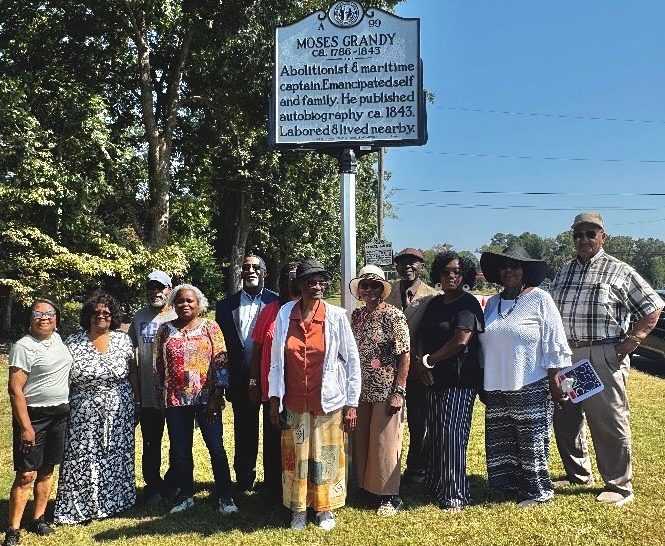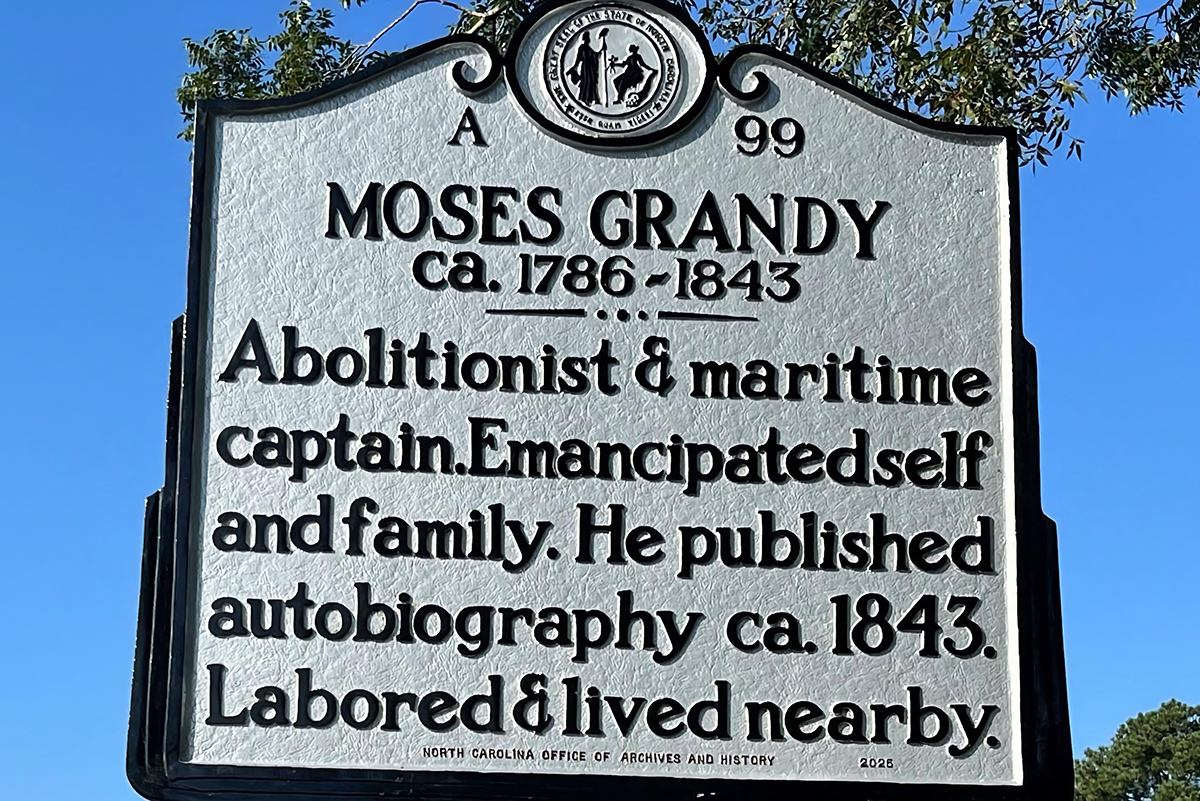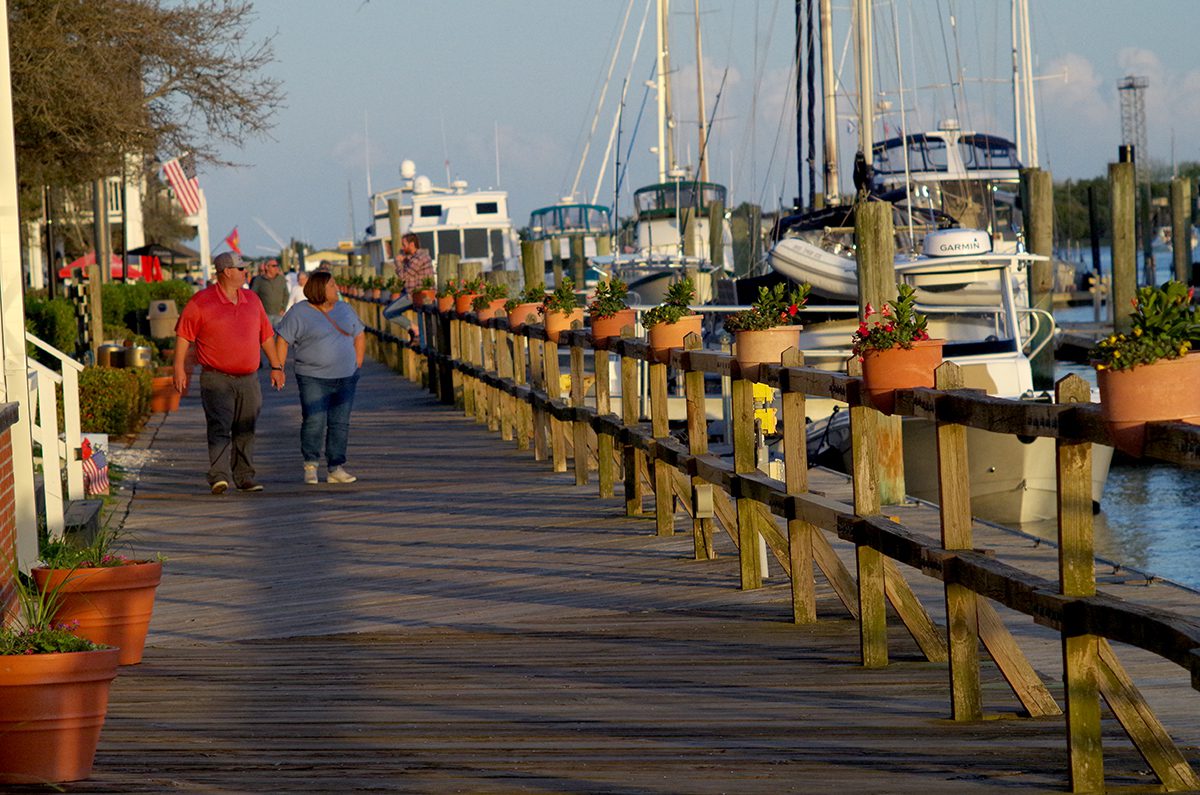
BEAUFORT – Residents here are outraged that town officials are negotiating behind closed doors a possibly decades-long contract to operate the town-owned docks that many say is already decided in favor of a giant conglomerate with operations already in Beaufort and in coastal South Carolina.
But the number of marina operators available with the needed expertise and financial heft to invest what Beaufort officials say would be $10-15 million in a needed rehabilitation of the town’s “iconic boardwalk” is likely finite. And, town officials say, grant funding could likely only result in about $3 million for the project.
Supporter Spotlight
Beaufort Waterfront Enterprises Inc. is the current operator of the Beaufort waterfront marina and has been for 46 years. Haywood Weeks, the corporation’s president, has told the town he no longer wishes to continue operating the docks after Dec. 31 when the current agreement expires.
The town has been planning for this inevitability for at least three years. Beaufort Waterfront Enterprises is a small corporation formed in 1979 with Weeks and Secretary Joseph “Jeb” Breary as the only agents on file with the state. A study committee was appointed in July 2021, but town residents say they’re not getting much information on such a high-profile, potentially environmentally sensitive deal that they worry will change Beaufort but not for the better. The entire waterfront infrastructure, including the boardwalk and fuel storage, are at the end of their useful life, with eyesores and environmental risks, according to the town.
Breary told Coastal Review Tuesday that Beaufort Waterfront Enterprises knows nothing about any negotiations because the town has essentially shut him and Weeks out of the deal, even in an advisory capacity.
“Nobody’s talking to nobody,” Breary said. “All we hear is what we’re hearing from the people who are screaming.”
Numerous townsfolk have told Coastal Review that the little they have been able to glean about the deal in the works, an apparent 50-year contract with a 50-year extension option, is deeply concerning because it has huge potential ramifications for Beaufort’s future.
Supporter Spotlight
Some have accused the town’s board of commissioners, which has put out a request for proposals and received responses, of using the cover of confidential “economic development” discussions to skirt public records law and advance their own personal business interests, rather than the town’s best interests. They say the fix is already in for Beaufort to contract with a company called Safe Harbor.
Town officials recently attempted to address those concerns in a detailed press release, saying they were “cognizant of the issues” and “taking into consideration the use of taxpayer dollars.”
The release noted the town’s financial position and the importance of considering “the level of service delivered” by whomever is selected as the contracted operator of the docks.
“Additionally, the character and charm of Beaufort must be preserved while meeting the public’s expectation to ensure the existing vistas of Rachel Carson Reserve. As a functional consideration, the Town must consider the availability of dock space for day boaters, the continuance of existing commercial activities, and the creation of mooring space in the harbor. Each of these issues is being considered by the Board of Commissioners along with the public feedback received throughout the process including the charrette conducted in May of this year. This is not an easy decision.”
But the announcement from the town doesn’t satisfy the Beaufort residents who have contacted Coastal Review in the past two weeks.
“It’s not a conspiracy theory to say downtown Beaufort will be different,” a town resident who wished to remain unnamed told Coastal Review last week.
Safe Harbor
Several Coastal Review readers have shared news reports from South Carolina, where Safe Harbor has operations and has made decisions that didn’t sit well with the folks in coastal towns down there.
Earlier this year, the Beaufort, South Carolina, City Council told Safe Harbor it wasn’t interested in the corporation’s proposed $27 million dock expansion.
“All the council members agreed that they think that expanding the dock will not only obstruct the view of the water that is so important to many who live in the city, but it will change the charm and feel that makes the city of Beaufort special,” reported the Island News of Beaufort, South Carolina, on April 4.
In February, the Hilton Head Island Packet reported that Safe Harbor Marina was “on the verge of beginning construction of what was originally billed as a megayacht marina” at its 317-acre site on Battery Creek in Port Royal, South Carolina. While the definition of a megayacht varies, the Island Packet report defined it as being between 130 and 590 feet in length. Residents here say it’s generally any vessel longer than 200 feet, and that worries them.
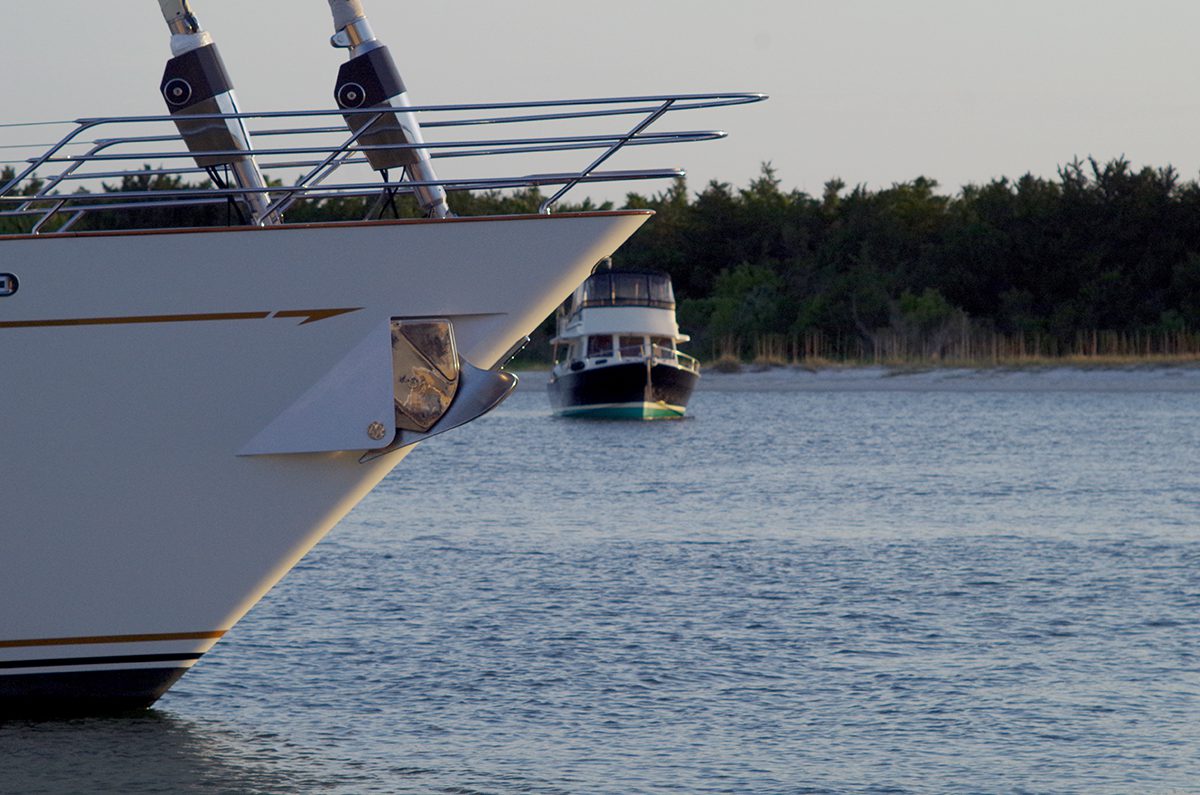
Breary, the dockmaster here, said the longest vessel capable of docking at the Beaufort waterfront is about 250 feet, essentially a mini-megayacht, he said. But the constant shoaling and necessary dredging required to keep the entrance channel to Beaufort Harbor clear is enough to likely keep the largest yachts away.
“A 250-foot boat doesn’t need to stop here unless something bad has happened,” Breary said, adding that the channel sometimes shoals to as shallow as 7 to 8 feet.
Breary also noted how Weeks had been instrumental over the years in raising and providing local funding to bring in the Army Corps of Engineers for periodic dredging.
In March, Port Royal took legal action to stop Safe Harbor from using part of the property there for dock manufacturing, allegedly for use at a different Safe Harbor property.
Safe Harbor Marinas was a limited liability company purchased in 2020 by Michigan-based Sun Communities Inc. As part of that roughly $2 billion deal, Sun acquired 99 marinas owned and operated by Safe Harbor and eight marinas Safe Harbor manages on behalf of third parties.
In 2022, Sun purchased Beaufort-based Jarrett Bay Boatworks — the entire 175-acre enchilada: manufacturing, marina, business park and all — for $51 million. Randy Ramsey, founder and then-president of Jarrett Bay Boatworks, has been vice president of operations with Safe Harbor Marinas since February 2022, according to his LinkedIn profile.
Ramsey, who was until recently also chairman of the University of North Carolina System Board of Governors, did not respond to Coastal Review’s request for comment on Beaufort’s pending decision.
Marina expansion worries
Obstructed views of Taylors Creek and the Rachel Carson Reserve, and expansion of the marina here are among the concerns from outspoken residents who have reached out to Coastal Review. But the secrecy is perhaps a chief concern, along with what they say is the town’s handling of contracts in the past.
No one in attendance spoke favorably of the alleged lack of transparency during the public comment portion of the July 22 Beaufort Board of Commissioners’ work session. As seen in the video of the meeting, Beaufort resident Robert Harper said the town has a sorry track record in holding its contractors accountable.
“The history of this town in enforcing its contracts is abysmal,” Harper told the board during his allotted three minutes. “And if you want an example of that I can give you plenty.”
He said the town had not litigated contractual shortcomings or enforced its rules or ordinances in the past. He asked for assurances that residents get to review any finalized contract before it’s executed and that it would be enforced once it’s in effect.
“If you can assure us that you will stand up and you will enforce the agreement that you hammer out, then we’ll feel a lot better about that, but we have no information. It’s all a void. There’s this mysterious black box where all this conversation is going on, but the public has no idea, and what we are afraid of is that you guys will come out one day and say, ‘Well, this is our decision, vote, done,’ and we will have no recourse.”
Harper also reminded the board of its accountability to voters.
“After all, y’all represent us. You’re not there for your own good. You’re there for us. We put you there for that reason so we would like to see what you’re doing on our behalf,” he said.
Others in town have echoed concerns about the lack of transparency or questioned the apparent urgency. They’ve asked, why not temporarily extend the contract with the current operator to allow a more public process? Others have asked, why, if the town cannot afford the needed dock upgrades, were grants and other funding opportunities not pursued more diligently? Still others have said it appeared the board was secretly selling out the town in a way that will drastically change its character.
Resident J.P. Gooch, during the public comment portion of the meeting, said two of three residents he’d spoken with knew nothing of what the board was deciding. He called for a more public process and more examination of public funding options. He said it appeared the commissioners were pressing “the easy button” by bringing in Safe Harbor, a publicly traded corporation.
“I don’t even know if it’s Safe Harbor that you’re talking to because there’s a lack of transparency,” said Gooch, who added that because the firm is publicly traded, “They’re beholden to their stockholders. They’re not interested in what Beaufort has to say.”
Resident Dr. Jud Kenworthy said the board had simply failed to ask the public what it wanted for the waterfront, “a valuable asset,” he said. “I’m a biologist so I look through the lens of biology when I look at things like this, and what I see here is a classic predator-prey relationship, and what we are, the town of Beaufort, what you are as our representatives, you know what the entire community is, it is the prey.”
Mayor Sharon Harker, during the meeting, offered assurances that the board would not approve a contract behind closed doors, which would be counter to open meeting laws. Harker is a board member with the North Carolina Coastal Federation, which publishes Coastal Review.
“This board would not make any decisions to sign any contract behind closed doors. I don’t even know why we’d even think that,” said Harker during the meeting, referring to the town board. “And yes, it will come to public light, and then yes, you will be able to have your opportunity to talk about it. So, I want you to take that to the streets.”
With that, the mayor then asked for a motion to enter into closed session. But before that happened, Commissioner Bucky Oliver, owner of the Beaufort Hotel, said he was confident that the board was doing right by the town. He said the board was listening and had already considered and was still considering many of the concerns expressed.
“I have to step back and reflect on the fact of where we are in our country and in our times, and we are in uncertain times, and we are anxious, and I am,” Oliver said. “And I’m not speaking about national issues, and I’m not speaking about dock issues. This is something that is right here in the midst of our thing, and our goal is to try to do the best job we can for the town of Beaufort. And I’m comfortable in looking anybody in the face, and I can tell you that I feel that confidence across this commission.”
Study committee recommendations
The town-appointed Harbor & Waterways Master Planning Advisory Committee began its work in summer 2021, “to evaluate needed improvements” to the docks, according to a town news release dated July 22. “After considerable review,” the committee presented its recommendations in September 2022.
“Armed with these recommendations, the Board decided to investigate whether a private market exists for a third-party operator with sufficient capital to invest in and manage the Town’s docks. Consequently, the Town set forth to explore these questions in the context of a long-term lease or in the form of a public-private partnership,” according to the news release.
The recommendations include $9.8 million in necessary improvements to the bulkhead, boardwalk and dock infrastructure and $4.1 million in “desired improvements, such as extending the boardwalk, a mooring field, replacing vessel fueling and storage tanks, creating more aesthetic and pedestrian-friendly features and adding other amenities.
Town officials determined that a private market does exist, but the town was “not financially positioned to invest $10-15 million in the rehabilitation of the waterfront.”
“With this understanding, the town investigated the possibility of financing the improvements through commercial lending as an alternative to a third party,” the town said in the release. “In consultation with First Tryon Advisors, the Town’s financial consultant, it was determined that commercial lending would be very difficult given collateral required for a loan requires the pledge of Town-owned assets other than the waterfront assets themselves. As such, a comprehensive review was conducted to determine what other fixed assets of the Town could be used as collateral. Unfortunately, the fixed assets that have an appreciable value are obligated. As such, they represent encumbrances and therefore cannot be used as collateral for a loan to improve the docks.”
Town officials said they also considered a bond referendum. “This option, if approved by the voters, requires an increase in property tax rates to satisfy the associated debt service. The Board has not expressed an interest in pursuing this alternative as the tax burden for improvements would be distributed to all property owners, and not just those who use and/or enjoy the docks.”




